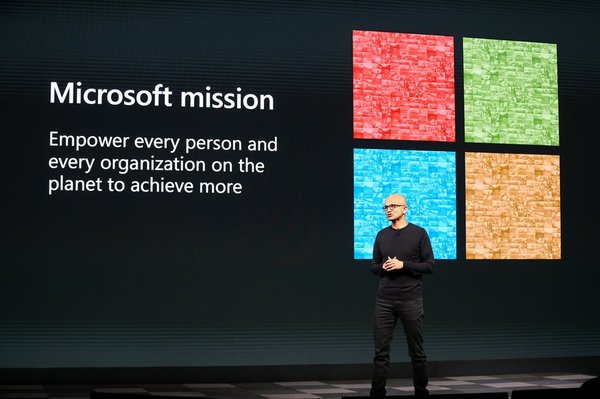Conscious capitalism is an ethical approach to profit-making that emphasizes environmental and social impact. Compared to traditional capitalism, conscious capitalism takes a broader view of value creation and the stakeholders a company must serve. The conscious capitalist pursues profits for shareholders while creating value for employees, suppliers, communities, society, and the environment.
Read on to learn about conscious capitalism, including the concept's origins, its guiding principles, and successful companies that practice a socially aware business approach.
Understanding conscious capitalism
Origin of conscious capitalism. The concept of conscious capitalism originates from a 2012 book written by John Mackey and Rajendra Sisodia. Mackey is a co-founder of Whole Foods, and Sisodia is a Babson College marketing professor and co-founder of Conscious Capitalism, Inc.

The book, "Conscious Capitalism: Liberating the Heroic Spirit of Business," argues for an upgraded form of free-market capitalism. The authors state that business leaders can achieve far more by incorporating higher purposes into their business plans than they can by a single-minded pursuit of profits.
Conscious capitalists believe that businesses aren't just accountable to shareholders -- they're accountable to the larger population and the environment, too. Business leaders and employees should incorporate the needs of this broader stakeholder group into their daily decision making.
The goals of conscious capitalism. Conscious capitalism is ambitious and transformative. The overarching goal is to make a positive impact on the world. A starting point is elevating capitalism to its highest potential where business as usual involves generating wealth while enriching lives and healing the environment.
The conscious business pursues many objectives under the umbrella of positive change. Examples include fostering leaders who are driven to serve ethically, employees who are passionate and fulfilled, workplace cultures that are accepting and authentic, wealthy shareholders, opportunity-rich communities, and a healthy, flourishing planet.
The benefits of conscious capitalism. Businesses, people, and the environment benefit from conscious capitalism. For example:
- Socially conscious businesses garner more trust, which can enhance customer loyalty.
- Happier, motivated employees are more productive and provide better customer service. They're more efficient and deepen customer relationships.
- Conscious businesses work to promote and enhance their communities, which can elevate the quality of life.
- Programs to conserve energy, minimize waste, and reduce the consumption of nonrenewable resources help protect the environment and counter the effects of climate change and pollution.
- Socially responsible investing and ESG investing are growing in popularity; the types of stocks that practice conscious capitalism appeal to investors who demand good corporate citizenship.
The four guiding principles
Conscious capitalism has four guiding principles: higher purpose, stakeholder orientation, conscious leadership, and conscious culture.
- Higher purpose: The conscious capitalist sees profits as a means to achieving a higher purpose, which is the business's true goal. As such, it should be incorporated into business plans and used as a guidepost for decision making.
You'll often see a higher purpose described in a business mission statement. The Motley Fool, for example, is on a mission "to make the world smarter, happier, and richer." Shoe company Toms says, "We've always been in business to improve lives."
Such mission statements align and engage employees and guide the company to move in the right direction. - Stakeholder orientation: The conscious business takes a broad view of its stakeholders and works to serve their best interests at all levels of the organization. The stakeholder group goes well beyond shareholders and board members; it includes anyone or anything affected by the business. Employees and their families, suppliers, customers, shareholders, local communities, governments, and the environment are all stakeholders to the conscious capitalist.
The conscious capitalism philosophy views the business and its stakeholders as one symbiotic ecosystem. The company depends on the health and well-being of stakeholders, and stakeholders depend on the company as a productive, ongoing concern. - Conscious leadership: In the conscious business, every team member follows the tenets of leadership on some level. These tenets are anchored by a continuous improvement mindset. Conscious leaders are striving to learn, grow, and innovate. They engage employees to support the higher purpose, they work to create win-win situations, and they are committed to operational excellence.
- Conscious culture: Conscious workplace cultures are transparent, fair, and inclusive. They are consistent with the higher purpose of the business, and they value accountability and integrity.
Conscious capitalism companies
The table below shows three companies that practice conscious capitalism.
| Company | What the Company Does Well |
|---|---|
| Costco (NASDAQ:COST) | Culture: Costco treats its employees well, even as it offers customers competitively priced goods. |
| Trader Joe's | Culture: Trader Joe's pays well and employees cite a fun, progressive environment. |
| Starbucks (NASDAQ:SBUX) | Equal opportunity: Starbucks is deeply committed to diversity and inclusion in its workforce. |
Table by author.
For a longer list of publicly traded companies that invest in people and the planet, see our list of the best ESG stocks of 2021.
Costco
"Here at Costco, we have a very straightforward, but important mission: to continually provide our members with quality goods and services at the lowest possible prices."
Costco practices conscious capitalism in several ways, but the retailer's treatment of employees is particularly noteworthy. Rather than squeeze employee compensation to gain efficiencies and keep prices low, the retailer takes a different approach.
At Costco, above-market wages, benefits for full- and part-time workers, and generous retirement contributions promote worker satisfaction and reduce employee churn. More than 60% of the retailer's workforce has more than five years of service, and 33% has 10 or more years of service. Costco has also received "best place to work" honors multiple times.
Other ways Costco serves its ecosystem include:
- The donation of millions annually to charities and local communities.
- The company's 10-point Climate Action Plan that defines its energy usage, waste reduction, and emissions goals.
- A code of ethics enforced throughout its supply chain.
- An animal welfare policy that includes a company-owned poultry supply facility that allows birds more space, better air quality, and more protection from weather.
Trader Joe's
"Trader Joe's believes every customer should have access to the best prices on the best products every day."
Trader Joe's, like Costco, promises its customers low prices, but the privately held company doesn't tap employee compensation to fulfill that mission. Starting pay at Trader Joe's is competitive, and crew members receive performance reviews every six months, with the opportunity for raises of as much as 7% annually.
Trader Joe's also heavily subsidizes employee health insurance, contributes to retirement plans, offers paid time off, and promotes from within. Almost 80% of supervisors were formerly crew members, and 100% of store managers were previously supervisors. Employees enjoy discounts on everything in the stores, plus flexibility with their work schedule.
Trader Joe's pursues sustainability, diversity and inclusion, and community support. For example:
- Trader Joe's works continually to minimize packaging, recycle materials, and reduce food waste. In 2020, the retailer's food waste was approximately 0.5%. That compares to an industry average of 10%.
- The retailer's $500,000 annual Vernon Boykin Scholarship Fund supports education for Black crew members and their families.
- Through its Neighborhood Shares Program, Trader Joe's donated $345 million in food and beverages to local communities in 2020.
Starbucks
"In everything we do, we are always dedicated to Our Mission: to inspire and nurture the human spirit – one person, one cup, and one neighborhood at a time ."
Starbucks describes its culture as "performance driven, through the lens of humanity." The world's largest coffeehouse chain pursues a range of programs to promote diversity, inclusion, and opportunity in its workforce. In 2017, the company pledged to hire 10,000 refugees around the world. Starbucks has hired 25,000 veterans and military spouses, and the company hopes to hire 5,000 more annually.

Employees who work at least 20 hours weekly can take advantage of Starbucks' College Achievement plan -- a partnership with Arizona State University offering 100% tuition coverage. Since 2014, the tuition program has helped more than 6,500 Starbucks employees complete bachelor's degrees.
Starbucks also prioritizes sustainability initiatives and ethical sourcing. For example:
- The company is working toward a 50% reduction in carbon emissions, landfill waste, and water consumption.
- Starbucks is donating 100 million disease-resistant coffee trees to farmers by 2025.
- In 2021, Starbucks partnered with Ocean Conservancy to donate $1 each time a customer orders a beverage using a personal reusable cup.
- In 2004, Starbucks launched Coffee and Farmer Equity (C.A.F.E.) Practices, a verification program that measures supplier farms on economic, social, and environmental criteria. The program was among the first of its kind for the coffee industry.
Business that makes the world better
Under conscious capitalism, businesses have the power to create opportunity and change the world. The approach doesn't come at the expense of profits, either. Profits are still a priority for businesses because they fund the pursuit of a higher purpose.
Successful companies such as Costco, Trader Joe's, and Starbucks are proving the conscious capitalism model: Investing in good is good for business.



















